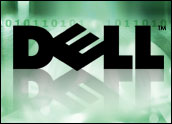
Hoping to burnish its image as an eco-friendly company, Dell said Thursday it would strive to become the first carbon-neutral maker of personal computers and other technology gear.
Dell plans to become carbon neutral in 2008, a year earlier than it had previously forecast, it said.
The company is committed to neutralizing the carbon impact of its operations around the world, a move it billed as a “significant extension of its global climate policy and environmental stewardship,” Dell added.
Challenging Others
CEO Michael Dell challenged fellow PC makers to follow suit by seeking ways to both reduce carbon emissions and to offset what is emitted through the planting of trees and other carbon-reducing measures.
“Never before in the history of business have we seen such a critical need to build a worldwide community dedicated to improving the environment,” Dell said. The company unveiled the initiative during a policy forum in Washington organized by the Center for Strategic and International Studies.
“Leadership starts at home, which is why we are going carbon neutral,” he added.
The effort will also include energy-saving programs and other attempts to reduce carbon output, Dell said.
To be carbon neutral, a business has to first calculate its greenhouse gas emissions and then find ways to both reduce its output of those gases — which have been tied to global warming and other environmental impacts — and to offset the impact of what it still produces, typically done by planting trees, which convert carbon dioxide into oxygen through the process of photosynthesis.
Planting and Reaping
For Dell, the carbon footprint is likely large, given that it has manufacturing operations around the world that rely on electricity and it adds additional carbon impacts when it ships its products to customers.
Dell is also creating the “Plant a Forest for Me” program, an expansion of the consumer-focused “Plant a Tree for Me” program, which offered Dell PC buyers the opportunity to offset their own carbon emissions by purchasing trees for planting.
Other companies joining with Dell in the reforestation program include Ask.com, AMD, ABN Amro, WellPoint and Salesforce.com. All the companies will purchase trees through the program — to be planted in sustainable forest environments — to help offset part of their carbon emissions.
The Dell program includes partnerships with two nonprofits — The Conservation Fund and Carbonfund.org — that will manage the distribution of the funds to forest-planning efforts.
If nothing else, the Dell carbon-neutral push represents a shrewd public relations thrust, Ovum analyst Ian Brown told the E-Commerce Times.
“This is all about marketing,” Brown said, noting that rivals such as HP, IBM and Sun Microsystems have all launched energy-saving products and touted their own green credentials. “There’s no proof the CIOs who buy technology are being swayed by the green messages, but there’s not doubt that enterprises are more aware of the need to be socially responsible.”
While having PC makers themselves go carbon neutral is a start, the real gains stand to be made when consumers are given tools for offsetting their impacts and when data centers — notorious power-hogs — are made more efficient through the advent of virtualization and server consolidation efforts, Brown added.
Small Step in Right Direction
Earlier this year, AMD released a study saying existing data centers in the U.S. alone consume 5 million kilowatts of energy per year and would continue to consume more power unless widespread technology improvements are made.
Dell can advance that effort by improving its service offerings aimed at helping companies reduce their power consumption through consolidation and virtualization. “Dell may be ahead on the offsetting, but it needs to catch up on services,” Brown noted.
Dell first pledged to go green in June, saying it would seek opportunities to buy power from renewable energy sources and build sustainable practices into its global operations.
The PC industry has a mixed track record on the environmental front. The race to build even faster and more powerful processors helped increase the amount of power machines use and only recently have major tech companies begun to roll out programs to help ensure that used PCs, printer cartridges and other so-called e-waste is properly disposed of.
Dell’s carbon-neutrality push follows a similar pledge made last summer by Google, which promised to be carbon neutral by the end of this year. As perhaps the largest user of servers in the world, Google, like Dell, has a leadership role to play in adopting green practices, said Gartner analyst Martin Reynolds.
However, the efforts of those companies staking out a leadership position will be more meaningful if they focus on actual energy reduction and renewable energy purchasing over purchasing of offsets, Reynolds told the E-Commerce Times.
“The offset industry is still unregulated and unproven, so the other elements of these programs are more meaningful because they are harder to achieve,” he added.






















































Social Media
See all Social Media